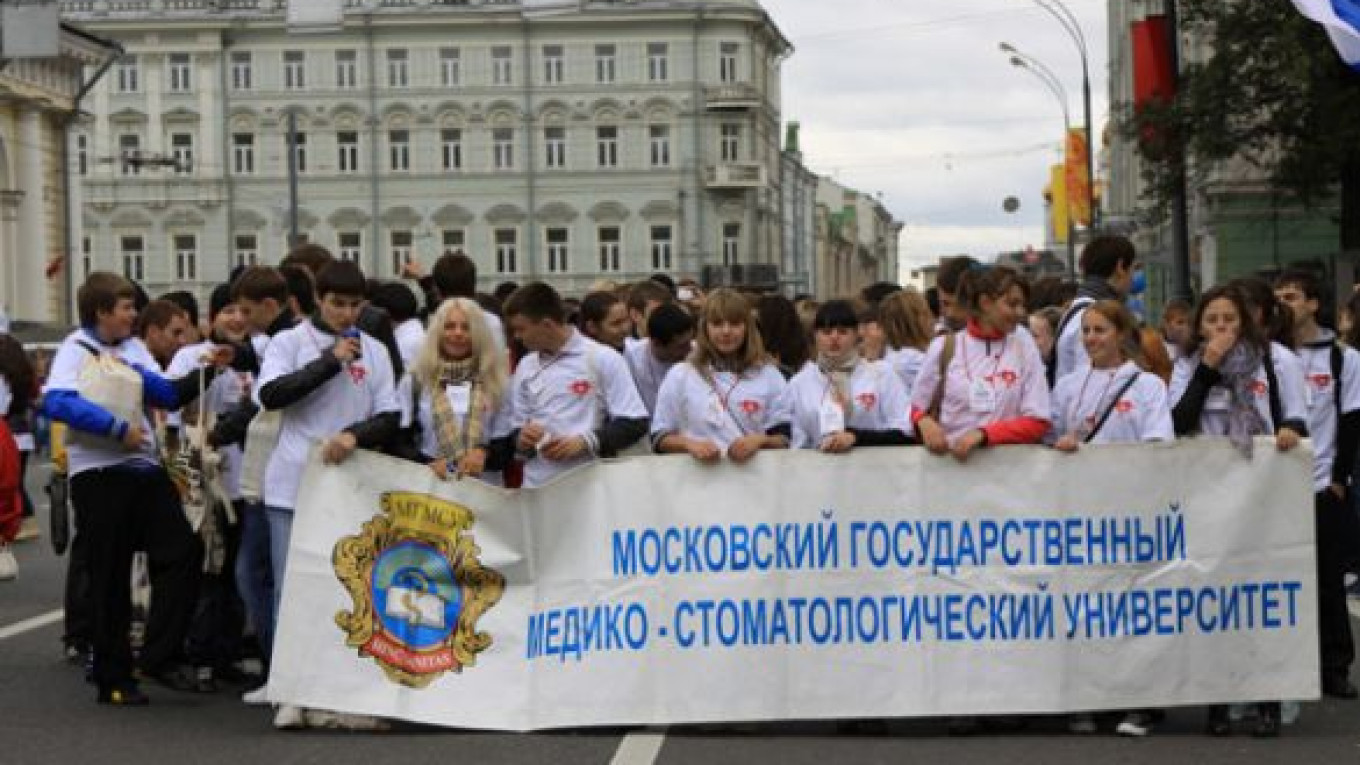An ordinary torchlit procession set for Thursday to commemorate World War II heroes has sparked an unexpected controversy, with calls from activists to stop the event because it reminded them of torchlit marches by the Hitler Youth.
The procession has been held in early May every year since 2005 by students of the Moscow State University of Medicine and Dentistry. It has never before sparked any public controversy.
But late Tuesday, editors of the @WakeUpR Twitter feed created a hashtag named in Russian and called on its almost 24,000 readers to re-tweet it in order to “make it a top post.”? ?
Next, they called the procession participants a comparison with Hitler Jugend, or Hitler Youth, although the initial Interfax that they cited didn’t say that any pro-Kremlin youth would take part.
A moderator of the Twitter page who requested anonymity because the blog was “collective” said the information was posted in parts “as soon as it appeared” and incorrect information was later deleted.
The tweet about “putinjugend” led to several dozen angry comments on Twitter and beyond about the march’s organizers.
Separately, a human rights activist publicly decried the use of torches in the procession. Alla Gerber who heads the Holocaust Foundation Ekho Moskvy late Tuesday that it reminded her of the Hitler Youth.
Gerber told The Moscow Times that back in 2005 “nobody paid attention to the inception of neo-Nazism,” although she said she was not referring to the medical students’ procession.
But several years after the first annual nationalist Russian March in 2005, “normal people understand what associations” a torchlit procession can “evoke.”
The university’s deputy rector, Kazbek Dzugayev, told The Moscow Times that only university students would take part in the procession, as usual.? ?
Dzugayev was outraged with the comparison to the Hitler Youth, saying the 60 torches in the procession would symbolize the university students who died in the war and would be lit from the Eternal Flame on Red Square.
The procession of 1,000 students in white robes will start at 9 p.m. Thursday in front of the university on Delegatskaya Ulitsa and proceed along the Garden Ring to a clinic on Dolgorukovskaya Ulitsa, from which students left for the front in 1941.
A Message from The Moscow Times:
Dear readers,
We are facing unprecedented challenges. Russia's Prosecutor General's Office has designated The Moscow Times as an "undesirable" organization, criminalizing our work and putting our staff at risk of prosecution. This follows our earlier unjust labeling as a "foreign agent."
These actions are direct attempts to silence independent journalism in Russia. The authorities claim our work "discredits the decisions of the Russian leadership." We see things differently: we strive to provide accurate, unbiased reporting on Russia.
We, the journalists of The Moscow Times, refuse to be silenced. But to continue our work, we need your help.
Your support, no matter how small, makes a world of difference. If you can, please support us monthly starting from just $2. It's quick to set up, and every contribution makes a significant impact.
By supporting The Moscow Times, you're defending open, independent journalism in the face of repression. Thank you for standing with us.
Remind me later.


